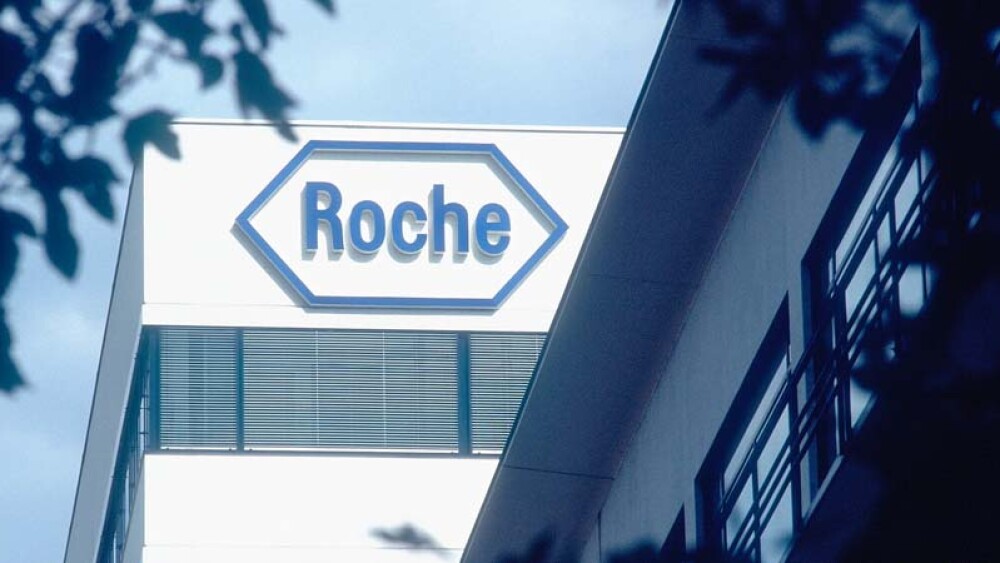SEATTLE and SINGAPORE, April 19, 2012 /PRNewswire/ -- Cell Therapeutics, Inc.("CTI") (Nasdaq and MTA: CTIC) and S*BIO Pte Ltd announced today that the companies have entered into an asset purchase agreement pursuant to which CTI would acquire world-wide rights to S*BIO's pacritinib, a highly selective JAK2 inhibitor. Pacritinib is an oral JAK2 (Janus Associated Kinase 2) selective inhibitor that has demonstrated encouraging clinical benefit in phase 1 and 2 clinical studies in patients with primary myelofibrosis (MF) or MF secondary to other myeloproliferative neoplasms (MPN). Pacritinib has orphan drug designation in the U.S. and Europe for myelofibrosis.
"JAK2 dysregulation is associated with a broad range of difficult-to-treat illnesses, including cancers and autoimmune diseases, and is one of the most exciting potential new targets in cancer therapy today," said James A. Bianco, M.D., CEO of Cell Therapeutics, Inc. "We believe a highly selective JAK2 inhibitor that also inhibits the JAK2 clonal mutation (JAK2V617F) offers a distinct biological and clinical advantage over marketed or development stage compounds which are non-selective inhibitors of the JAK pathway. We believe that the lack of suppression of red blood cell and platelet formation seen with pacritinib has the potential to satisfy a medical need not currently addressed with existing non-selective JAK1/JAK2 inhibitors."
"The acquisition of pacritinib is aligned with our strategy of becoming a leader in the treatment of blood related cancers and disorders. We are looking forward to build on the progress made by S*BIO," Bianco continued. "With Pixuvri approaching approval and launch in the EU, and tosedostat and pacritinib entering phase 3 our late stage portfolio addresses a full complement of blood related cancers ranging from MPN to MDS, leukemia and lymphoma."
"JAK inhibitors are a very exciting new class of targeted agents that provide effective treatment in a previously difficult to treat disease called myelofibrosis," stated Srdan Verstovsek, M.D., Ph.D., Associate Professor, Department of Leukemia, Division of Cancer Medicine, The University of Texas MD Anderson Cancer Center, Houston, Texas and Executive Committee Member, International Working Group for Myelofibrosis. "Pacritinib is a highly specific JAK2 inhibitor that does not appear to cause suppression of platelets or red blood cells as seen with other treatments, while reducing enlarged spleen and improving disease related debilitating symptoms in patients with myelofibrosis. I am looking forward to working with Cell Therapeutics in developing this agent for patients with myelofibrosis who present with low blood counts or develop them on therapy."
"We are most impressed with CTI's experienced team and believe that they are the ideal company to further develop pacritinib, S*BIO's most advanced program," commented Ms. Tamar Howson, S*BIO's CEO. S*BIO is a privately-held biotechnology company focused on the research and clinical development of novel targeted small molecule drugs for the treatment of cancer with leading programs around kinases and histone deacetylases (HDAC). S*BIO has strong links with a network of medical oncologists in Asia Pacific and its investors include Bio*One Capital a subsidiary of EDBI, Aravis Ventures, Mitsui Ventures and other international funds.
Pursuant to the terms of the agreement, CTI will make an upfront payment of $15 million and issue $15 million shares of unregistered preferred stock convertible into common stock in CTI. The agreement also includes regulatory success- and sales-based milestone payments, as well as single digit royalties on net sales. CTI will be solely responsible for development and commercialization activities of pacritinib worldwide. The agreement will be subject to satisfaction of certain closing conditions. The terms of the agreement will be provided in more detail in a Form 8-K to be filed with the U.S. Securities and Exchange Commission.
About Janus Associated Kinase (JAK)
The JAK family of enzymes are a central component in signal transduction pathways, which are critical to normal blood cell growth and development as well as inflammatory cytokine expression and immune responses. When dysregulated by activating mutations, uncontrolled blood cell growth can occur accompanied by inflammation and immune system activation contributing to disease manifestations in MPN. Autoimmune diseases such as psoriasis and rheumatoid arthritis also have activation of this pathway and JAK inhibitors are in development for these disorders. In addition, activation of the JAK2 pathway and the related FLT3 pathway (whether by activating mutations or other causes) is frequently associated with leukemia, and lymphoma. Pacritinib inhibits both JAK2 and FLT3 suggesting potential use in treating such blood related cancers.
Myelofibrosis is a stem cell-derived clonal myeloproliferative disease frequently associated with a mutation in the JAK2 gene (JAK2V617F). Inhibition of JAK1/ JAK2 has recently been shown to lead to clinical benefit in patients with advanced MF and platelet counts of 100,000 or higher at study entry, resulting in the first JAK1/JAK2 inhibitor to be approved for patients with advanced MF. The approved JAK inhibitor is not selective for JAK2 but inhibits both JAK1 and JAK2. While effective in reducing patients symptoms associated with MF, JAK1/JAK2 inhibitors frequently cause suppression of platelets and red blood cells, often leading to a need for red blood cell transfusions. Pacritinib may offer an advantage over other JAK inhibitors by having less bone marrow suppression. Such agents may also lead to a modification of the underlying disease process by selectively affecting the malignant clone expressing JAK2V617F.
About Myeloproliferative Neoplasms (MPN)
MPN comprise several diseases all characterized by stem cell derived clonal myeloproliferation, including primary and secondary myelofibrosis, polycythemia vera (PV) and essential thrombocythemia (ET).
Myelofibrosis (MF), the most common MPN, is a progressive and life threatening neoplasm that affects the blood-forming tissues in the body. According to the MPN Research Foundation, in 2011 there were an estimated 30,000 patients in the United States with MF approximately 30-40% of whom are thrombocytopenic with platelet counts below 150,000/uL.
Myelofibrosis is caused by the accumulation of malignant bone marrow cells that triggers an inflammatory response, scarring the bone marrow and limiting its ability to produce red blood cells prompting the spleen and liver to take over this function resulting in enlargement of the spleen and related debilitating symptoms including anemia, extreme fatigue and pain.
Myelofibrosis patients have a range of cellular mutations associated with the disease, of which a mutation in the JAK2gene (the JAK2V617F mutation) is the most common, occurring in more than half of patients with primary myelofibrosis. Normally in the body, JAK2 is turned on by various natural growth factors to make new blood cells as needed. The JAK2 mutation leaves the JAK2 enzyme permanently turned on, which causes the overgrowth of bone marrow stromal cells at the heart of myelofibrosis. Blood tests have now been developed that can specifically identify patients with this mutation.
About Pacritinib
Pacritinib is an oral, once a day, tyrosine kinase inhibitor (TKI) with dual activity against JAK2 and FMS-like tyrosine kinase 3 (FLT3). Mutations in these kinases have been shown to be directly related to the development of a variety of blood related cancers including MPD, leukemia and lymphoma. Pacritinib has demonstrated encouraging results in phase 1 and 2 studies for patients with myelofibrosis and a phase 3 study is planned in this disease.
FLT3 is a commonly mutated gene found in acute myeloid leukemia (AML) patients and its activating mutations have been proven to be a negative prognostic marker for clinical outcome suggesting a possible future role for treatment of AML.
Conference Call Details
On Thursday, April 19, 2012, at 8:30 a.m. Eastern/2:30 p.m. Central European/5:30 a.m. Pacific, members of CTI's (NASDAQ and MTA: CTIC) management team will host a conference call to discuss the agreement to acquire pacritinib.
Conference Call Numbers
Thursday, April 19, 20128:30 a.m. Eastern/2:30 p.m. Central European/5:30 a.m. Pacific Time
1-877-941-8609 (US Participants)
1-480-629-9692 (International)
Call-back numbers for post-listening available at 11:30 a.m. Eastern Time:
1-800-406-7325 (US Participants)
1-303-590-3030 (International)
Passcode: 4531446#
Live audio webcast at www.celltherapeutics.com will be archived for post-call listening approximately two hours after call ends.
About Cell Therapeutics, Inc.
Headquartered in Seattle, CTI is a biopharmaceutical company committed to developing an integrated portfolio of oncology products aimed at making cancer more treatable. For additional information, please visit www.CellTherapeutics.com.
Sign up for email alerts and get RSS feeds at our website, http://www.CellTherapeutics.com/investors_alert
This press release includes forward-looking statements that involve a number of risks and uncertainties the outcome of which could materially and/or adversely affect actual future results and the market price of CTI's securities. Specifically, the risks and uncertainties that could affect the development of pacritinib include risks associated with preclinical and clinical developments in the biopharmaceutical industry in general, and with pacritinib in particular, including, without limitation, the potential failure of pacritinib to prove safe and effective for the treatment of patients with primary MF or MF secondary to other MPNs as determined by the U.S. Food and Drug Administration (the "FDA") and/or the European Medicines Agency (the "EMA"), that pacritinib may not satisfy a medical need not currently addressed with existing non-selective JAK1/JAK2 inhibitors, that the phase III study of pacritinib may not occur as planned, that the acquisition of pacritinib may not be timely completed, if at all, that the projected benefits of the acquisition of pacritinib may not materialize as expected, that CTI may not be able to successfully implement its plans, strategies and objectives related to the acquisition and development of pacritinib, that Pixuvri may not prove safe and effective for the treatment of relapsed or refractory non-Hodgkin's lymphoma and/or other tumors as determined by the FDA and/or the EMA, that Pixuvri may not be immediately available to patients in the EU, that CTI may not be approved in the EU and CTI may not launch, market and commercialize Pixuvri as planned, that CTI may not be able to complete the PIX306 clinical trial of Pixuvri-rituximab versus gemcitabine-rituximab in patients with aggressive B-cell NHL, who failed front-line CHOP-R and who are not eligible for ASCT (2nd line) or failed ASCT (3rd or 4th line) by June 2015 or at all as required by the EMA or have the results of such trial available by June 2015 or at all, that CTI may not be able complete a post-marketing study aimed at confirming the clinical benefit observed in the PIX 301 trial, that the conditional marketing authorization for Pixuvri may not be renewed, CTI's ability to continue to raise capital as needed to fund its operations, competitive factors, technological developments, costs of developing, producing and selling CTI's product candidates, and the risk factors listed or described from time to time in CTI's filings with the Securities and Exchange Commission including, without limitation, CTI's most recent filings on Forms 10-K, 10-Q and 8-K. Except as may be required by law, CTI does not intend to update or alter its forward-looking statements whether as a result of new information, future events, or otherwise.
Media Contact:
Dan Eramian
T: 206.272.4343
C: 206.854.1200
E: media@ctiseattle.com
www.CellTherapeutics.com/press_room
Investors Contact:
Ed Bell
T: 206.272.4345
Lindsey Jesch Logan
T: 206.272.4347
F: 206.272.4434
E: invest@ctiseattle.com
www.CellTherapeutics.com/investors
SOURCE Cell Therapeutics, Inc.




